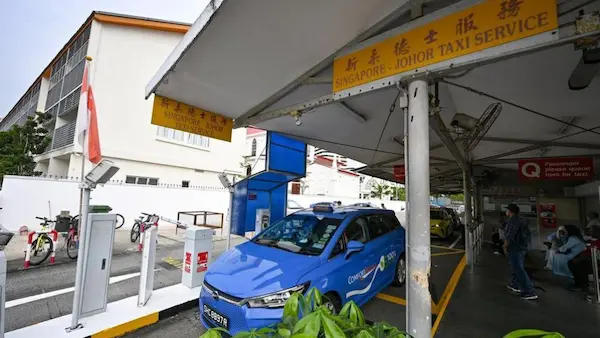Project Wolbachia in Singapore: A Revolutionary Dengue Control Initiative
Project Wolbachia in Singapore: A Revolutionary Dengue Control Initiative
Dengue fever is a significant public health concern in tropical regions, including Singapore, where the Aedes aegypti mosquito serves as the primary vector for the disease. In response to the rising incidence of dengue cases, Singapore has launched Project Wolbachia, an innovative initiative aimed at controlling mosquito populations through biological methods. This article delves into the background, methodology, expansion plans, community involvement, and future directions of Project Wolbachia in Singapore.
Background of Project Wolbachia
Dengue fever has been endemic in Singapore for decades, with thousands of cases reported annually. Traditional vector control methods, such as insecticides and habitat removal, have proven to be only partially effective due to the mosquitoes’ ability to adapt and develop resistance. Recognising the urgent need for alternative strategies, the National Environment Agency (NEA) initiated Project Wolbachia in 2016.
The project utilises a unique biological approach by releasing male Aedes aegypti mosquitoes that have been infected with Wolbachia bacteria. This bacterium interferes with the mosquitoes’ ability to transmit dengue viruses. The initial phase involved extensive research and trials to assess the efficacy of this method. The results were promising, leading to broader implementation across various residential areas.
Methodology and Results
The core methodology of Project Wolbachia involves the mass release of male mosquitoes that carry the Wolbachia bacteria. These males mate with wild female mosquitoes, resulting in offspring that are less likely to survive or transmit dengue viruses. The NEA has reported remarkable outcomes from this approach:
- Population Reduction: In areas where releases have taken place, Aedes aegypti populations have been reduced by more than 90%. This significant decrease has been attributed to the inability of offspring from these matings to thrive.
- Dengue Risk Mitigation: Residents in areas with ongoing releases have experienced a reduction in dengue cases by up to 88%. This dramatic decline underscores the effectiveness of using biologically modified mosquitoes as a vector control strategy.
- Community Engagement: The NEA has prioritised community engagement throughout the project. Public awareness campaigns and community meetings have been instrumental in informing residents about the project’s goals and methods. Surveys indicate that over 70% of residents are aware of Project Wolbachia and express support for its objectives.
Expansion Plans
As of October 2024, Project Wolbachia is set to expand significantly. The NEA announced plans to extend the initiative to five additional sites: Hougang, Serangoon Central, Serangoon North, Jurong East, and Jurong West. This expansion will increase coverage from 480,000 to 580,000 households, allowing more residents to benefit from reduced dengue risks.
The decision to expand follows encouraging outcomes from ongoing multi-site studies that indicate an approximate 75% reduction in dengue infections among residents living in areas where releases have occurred. The NEA reported an impressive 80-90% reduction in Aedes aegypti populations at these sites.
Community Involvement and Public Perception
Community involvement is crucial for the success of Project Wolbachia. The NEA has actively engaged residents through information campaigns and community meetings to explain the project’s goals and methods. This engagement has fostered a supportive environment where residents feel informed and involved.
Public sentiment surveys conducted during various phases of the project reveal that over 70% of respondents were aware of Project Wolbachia, with many expressing no concerns about the release of additional mosquitoes in their neighbourhoods. The high level of trust in government initiatives plays a significant role in this positive perception.
Addressing Concerns
Despite overall support for Project Wolbachia, some residents have expressed concerns about increased mosquito sightings due to the releases. The NEA has addressed these concerns by providing clear communication about the project’s objectives and expected outcomes while encouraging community action against mosquito breeding through regular maintenance and cleanliness practises.
Scientific Research and Development
Ongoing research is integral to the success of Project Wolbachia. The NEA collaborates with local universities and international experts to enhance understanding of mosquito biology and behaviour. Research focuses on optimising release strategies, improving cost-effectiveness, and ensuring community safety.
Key Research Areas
- Genetic Studies: Understanding how Wolbachia affects mosquito genetics can help improve release strategies.
- Ecological Impact: Research is being conducted on how releasing Wolbachia-infected mosquitoes affects local ecosystems.
- Long-term Monitoring: Continuous monitoring of mosquito populations helps evaluate the long-term effectiveness of releases.
Future Directions
Looking ahead, Project Wolbachia aims not only to expand its coverage but also to continually monitor and evaluate its effectiveness through scientific studies. The NEA plans to adjust release schedules based on real-time data from surveillance systems designed to track mosquito populations across Singapore.
Potential Global Impact
The success of Project Wolbachia could serve as a model for other countries grappling with similar public health challenges related to mosquito-borne diseases. As dengue continues to pose a threat globally, innovative solutions like this project could play a crucial role in global health strategies.
Conclusion
Project Wolbachia represents a significant advancement in Singapore’s fight against dengue fever. By leveraging innovative biological control methods, this initiative not only aims to reduce mosquito populations but also strives to protect public health effectively. As it expands into more residential areas, continued community support and engagement will be vital for its long-term success.
Through rigorous scientific evaluation and community involvement, Project Wolbachia stands as a promising model for other countries grappling with similar public health challenges related to mosquito-borne diseases. By investing in research and fostering community trust, Singapore is taking proactive steps toward a healthier future free from dengue fever’s devastating impacts.
Call to Action
Residents are encouraged not only to support Project Wolbachia but also actively participate by maintaining clean surroundings and reporting any potential breeding sites for mosquitoes. Together, through collective action and innovative strategies like those offered by Project Wolbachia, we can work towards a dengue-free Singapore.

Free Movie Screening in Sentosa: Family Fun at the Beach

Singapore Food Festival 2025: Ultimate Culinary Adventure

Central Kitchen Meal Model: Singapore Schools Transform Food Service

Central Kitchen Meal Model: Singapore Schools Transform Food Service

Cathay Cineplexes Shut Down After 86 Years in Singapore

FairPrice Save Every Day: Your Guide to Unlimited Savings

Cross-Border E-Hailing (Singapore-Malaysia): Current Challenges and Future Prospects

Free Movie Screening in Sentosa: Family Fun at the Beach

Singapore Food Festival 2025: Ultimate Culinary Adventure

Central Kitchen Meal Model: Singapore Schools Transform Food Service







